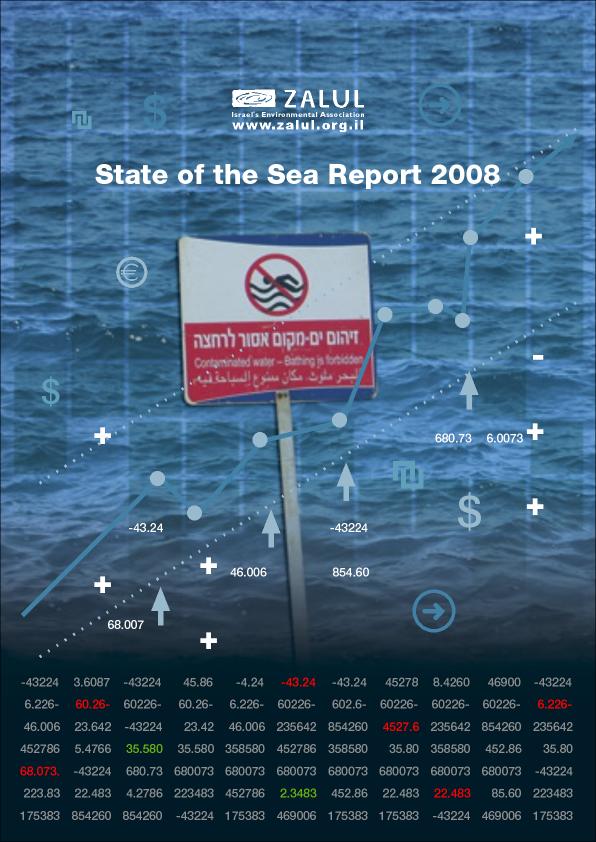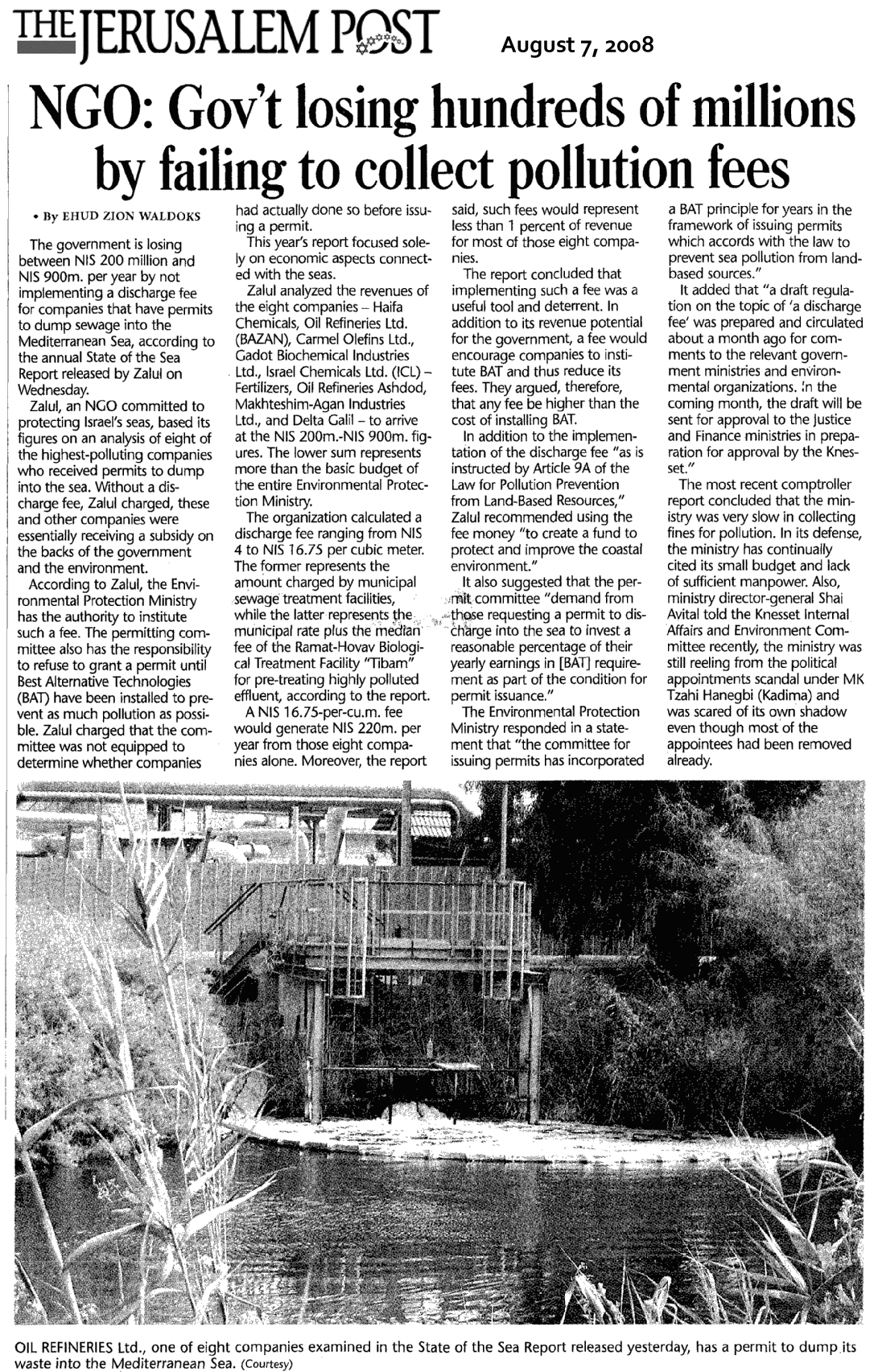 Zalul, the non-profit marine NGO, has released it’s 2008 State of the Sea Report. Yesterday a press conference was held at Cafe Masada in Tel Aviv with over 20 members of the press gathering to hear the latest news about the state of Israel’s Mediterranean Sea.
Zalul, the non-profit marine NGO, has released it’s 2008 State of the Sea Report. Yesterday a press conference was held at Cafe Masada in Tel Aviv with over 20 members of the press gathering to hear the latest news about the state of Israel’s Mediterranean Sea.
This year was a wake-up call to the public and the government. The report discovers that by implementing the law that requires the government to institute a discharge fee for polluters the Ministry of the Environment could double, even triple its (currently paltry) budget!

Zalul's Executive Director, Yariv Abramovich, is interviewed by Israel Army Radio (Galei Tzahal) at the 2008 Sea Report press conference.
This year’s report is focused on the lack of economic incentives for factories to reduce their pollution. It calculates the cost of a pollution discharge fee (if one were to be implemented) for several polluting companies and compares this to their profits.
We believe this report will have dramatic reverberations that will lead to change, particularly with the implementation of a discharge fee for polluters which will strongly encourage them to update their treatment facilities.
Each year over 50 million cubic meters of industrial effluents and sewage are dumped into the coastal waters of Israel by special permit of the Inter-ministerial Committee for Issuance of Discharge Permits without any discharge fee. This amount does not include municipal sewage from treatment plants. Actual total effluent and sewage discharges are estimated at over 100 million cubic meters.

The report It finds that millions of shekels stay in the hands of corporations rather than going towards the application of best available technologies or a governmental fund for protecting the environment. Issuing permits without demanding any discharge fee results in marine pollution and lack of advanced treatment technologies.
According to a calculation of industrial discharge volumes and a treatment fee of 4 to 16.75 shekels per cubic meter (based on existing land based sewage treatment fees for effluent of various quality), the amount of money which is not collected and stays in the hands of the factories, is over 200 million shekels, and may be as high as 900 million shekels (the Ministry of Environment’s annual budget is less than 200 million shekels each year).
The report finds that the discharge fee would represent between 1.3% and 5.4% of the annual profits and less than one percent of annual revenues of the 8 companies evaluated. These results indicate that many companies clearly have an ability to implement advanced effluent treatment, but because of market failures, have no incentive to do so.



